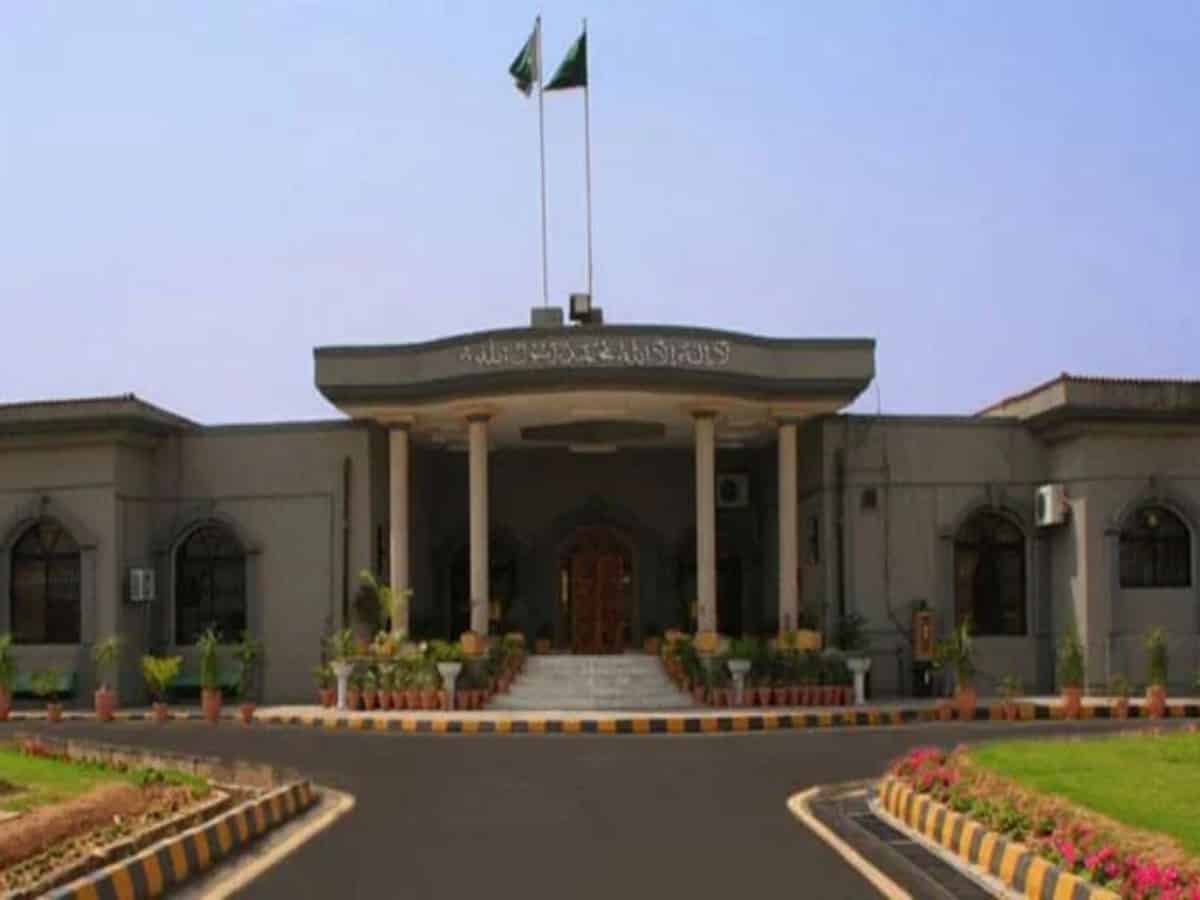
Islamabad: In a fresh twist in the cipher case, the Islamabad High Court has observed that the Federal Investigation Agency has nothing to prove that jailed former prime minister Imran Khan retained the confidential diplomatic cable and it went missing from his possession.
An Islamabad High Court (IHC) division bench comprising Chief Justice Aamer Farooq and Justice Miangul Hassan Aurangzeb, who on Tuesday resumed hearing appeals filed by 71-year-old Khan and his then foreign minister Shah Mehmood Qureshi against their conviction in the cipher case, questioned whether on not there was any record available with the prosecuting agency to prove that the jailed former premier retained the cipher.
Pakistan Tehreek-e-Insaf (PTI) founder Khan was sentenced to 10 years of imprisonment along with ex-foreign minister Shah Mahmood Qureshi in the cipher case in which the former premier showed a piece of paper — allegedly a copy of a diplomatic cipher — at a public rally in Islamabad, claiming it as proof of a conspiracy against his government by a foreign power, referring to US diplomat Donald Lu, who has been at the centre of the cipher controversy.
Khan had brandished the cipher paper just two weeks before the ouster of the PTI government in April 2022 through a vote of no-confidence.
Earlier, a foreign ministry report submitted by defence counsel Barrister Salman Safdar to the IHC containing details of the cipher’s distribution suggested that almost every recipient of the cipher, including the former army chief and the chief justice, returned the confidential document after a case was registered against Khan, Dawn News reported.
While special prosecutor Hamid Ali Shah explained the cypher movement from the foreign ministry to the PM Office, Justice Farooq asked: “Is there any record of the cipher’s movement that it was handed over to the prime minister by the principal secretary?”
Shah replied that Azam Khan, the then-principal secretary, testified before the court that the cipher was handed over to the PTI founder and was never returned.
“We believe it’s hearsay,” remarked the chief justice, adding that there was a possibility that Khan had asked the secretary to return the cipher.
Shah, however, said the court had ample reason to believe that the ex-PM received and perused the cipher based on which he made public speeches and even sent a demarche to the US.
“But how do we know it was not returned?” the chief justice questioned.
Shah replied that witnesses in the case had stated on oath that Khan never returned the confidential document.
He said that during a public speech and an interview with a private television channel, Khan admitted that the cipher was in his possession.
Justice Aurangzeb remarked that politicians make such statements to pander to the crowd.
He asked the state’s counsel to apprise the court of what happened with the First Information Report registered over Azam Khan’s alleged abduction and directed the counsel to submit a challan or discharge report in the FIR by May 2.
Meanwhile, Khawar Farid Maneka, the former spouse of Bushra Bibi, sought the transfer of the appeal against the conviction of Khan and his now wife in the Iddat case.
Maneka requested sessions judge Shahrukh Arjumand to recuse himself from hearing the appeal for being biased, accusing the judge of being sympathetic to the PTI party.

